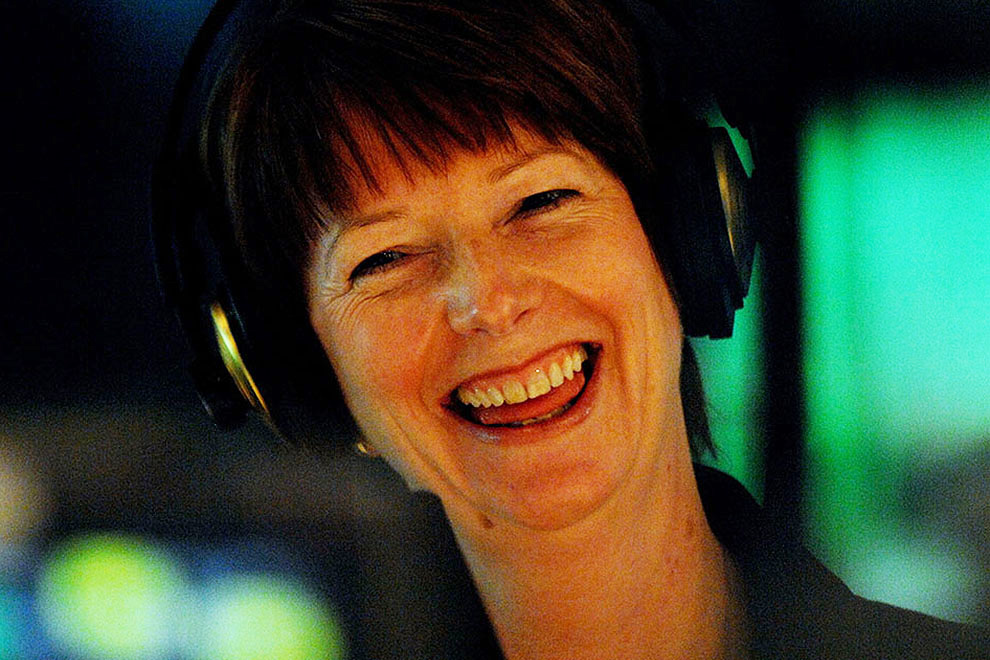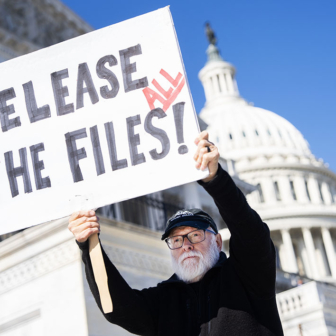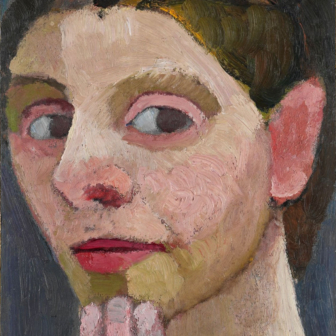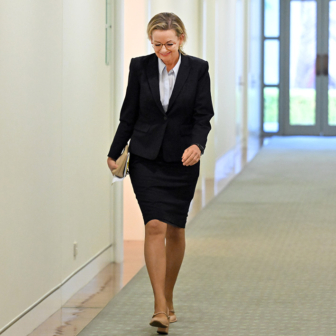Saturday 24 November 2007. I was one of the 1,112,000 viewers tuned to the ABC, the most-watched television channel that fateful night. Like millions of other Australians, I had had enough of the Howard government. Howard in his tracksuit, Howard pontificating, Howard’s trimmed eyebrows pointed upward, conveying a spuriously avuncular worry or concern. The punitive action against Mohamed Haneef, David Hicks and desperate refugees. The lies about going to war in Iraq, the blandishments for mothers to stay at home. The blanket refusal to sign the Kyoto protocol, to say sorry to Indigenous people whose families and cultures were ripped apart by the policies of successive governments. The massive loss of revenue through unwarranted tax cuts and inequitable superannuation entitlements for well-to-do retirees. The horror of the grossly misnamed WorkChoices, the scandal of inflated private school funding, the neglect of basic infrastructure, the dilapidation of public schools and hospitals, the long waiting lists for treatment, the disingenuousness about interest rates. The new Labor leadership had brought fresh hope that this second-longest, dismayingly reactionary and shortsighted federal government was about to come to a well-deserved end.
The two guests with Kerry O’Brien on the ABC were Nick Minchin, the government’s finance minister, and Labor’s new deputy leader Julia Gillard. (How symbolic this was, if we’d only known then to read the signs.) I found Gillard enchanting: bright, funny, a workaday woman in the best working-class tradition. There was nothing shellacked about her, nothing slick or polished. But sharp – my, she was sharp. In my memory this remains the real Julia. And what happened to her afterwards is, to me, the real Julia story.
It appears she agrees. My Story, the memoir she’s produced in the fifteen months since she ceased being prime minister, opens with a snapshot of another, no less fateful night:
I felt a sense of stillness and loneliness on the walk from Labor’s caucus room to my office, having just been voted out of the prime ministership. Around me was anything but stillness. There was a frenzy of cameras and reporters pushing and shoving to try and get “the” shot, hear a comment. Good colleagues, loyal colleagues walked with me, yet that did not overwhelm the sense of being isolated in the moment. My wonderful staff lined the corridor to my office, applauding in tribute to me. Caterina Giugovaz, a young woman on my staff who had become a close friend, like a daughter to me, was sobbing as she clapped, her face a picture of misery.
Gillard goes on to describe her walk to the Blue Room, where she would face the throng and deliver her announcement, an announcement unaccompanied by tears. She would be resilient, as she had always been.
It borders on cliché to say that a book never appears in a vacuum, that the way it is written is the way in which its author attempts to address its context. In this, as in so much that characterised her prime ministership, Gillard responds quickly and comprehensively to the major criticisms, the ones that dogged her in office and would have made it impossible for anyone less resilient to function, let alone govern. She means to brush them away so she can proceed to the more high-minded issues that are the substance of the next 300-plus pages. But it’s an error similar to calling the 2013 election so far in advance, which fanned rather than pre-empted the opposition’s campaign. And by opening with a section designed to set the record straight about how she took over the leadership, she gives more oxygen to the controversy. True to form, the media has seized on this part of the book and on other, more trivial, anecdotes that pepper what is, for the genre, an unusually serious-minded, analytical and reflective text.
Perhaps the story’s most durable element is the one that Gillard was determined to play down until well into her prime ministership. To succumb to further cliché, this was the large female elephant taking up all the space in the room. On that electrifying night when Kevin07 carried the nation, I could never have imagined that Rudd himself would be swept away by the woman who was revelling so in the victory, or dreamt that she would become Australia’s first woman prime minister. It was enough that there was a Labor one, even though Rudd’s acceptance speech was such a curious letdown. (His most emphatic remark on that momentous night – the night, remember, on which Howard himself was unseated – was that Labor couldn’t party much because they had to get down to work. Indeed, work was a constant theme for Rudd and his successor, a thorny path to the collective unconscious if there ever was one; but I’ll come to that.) When the time did come for Rudd to go – and Gillard makes a near-unanswerable case for it – and we women were to be led, far sooner than we expected, by one of our gender, the circumstance of Gillard’s ascendancy had many of us floundering.
I confess to being one of those. Having watched the fortunes of Labor in New South Wales, where premier after premier was shot down like so many ducks in a carnival booth, Rudd’s removal filled me with dismay. Not because I was uncritical of his leadership but because of the political disaster I was certain it was. Nor was I convinced that Gillard could improve Labor’s prospects. How could she hope to campaign on the government’s record when the government itself had to get rid of its leader? To my mind, it was yet another instance of Labor’s handing over the poisoned chalice to a woman whenever trouble was brewing.
And Gillard was changed. Her hair was restyled, her makeup impeccable, the suits came straight from Millers of Manuka, or looked like they did. To some, even the painted nails shrieked blood. Where was the bubbly, laughing, down-to-earth, sharp-as-a-tack woman who’d beguiled me, a woman who was one of our own? On this model, what’s more, the unaltered working-class twang came over like a crosscut saw. The geniuses who put Gillard through this grotesque metamorphosis seemed to have forgotten what made Rudd so popular. Nerd that he was, he didn’t come across as a silvertail. He was rumpled, smiling, seemingly comfortable in his skin.
If this seems unfair, especially coming from a feminist, let me be clear. What I am groping towards is a recognition of the nuances involved in projecting an image in modern democracies. The teams of specialists who groom politicians for the public can be horribly wrong when they choose mediocrity over whatever it is that makes that politician special. Perhaps the very novelty of an Australian woman prime minister had them flummoxed, so the best they could come up with was a clone of a commercial television newsreader.
Both Gillard’s belief in herself and her purpose in entering the political sphere are better conveyed in this book than they ever were in public once she became the country’s leader. This is largely due to the imperfect filter our media has become, particularly when so much of it is controlled by Murdoch, a man who relentlessly opposed her government, and her vengeful predecessor’s skill at selectively leaking to key press gallery journalists, even those like Laurie Oakes and Peter Hartcher who weren’t in Murdoch’s stable.
Yet it owes much as well to Gillard’s specific leadership qualities, which are more transactional than inspirational. A negotiator and administrator par excellence, she’s a woman who gets things done. Like Rudd, she places a lot of emphasis on work: she had work to do in government, and she was focused on “working families.” Whenever either of them praised the government’s record it was generally in terms of the work it had done or was doing. How revealing this is, not only about the preoccupations of the government, especially and legitimately so when steering us through the global financial crisis, but of the kind of society Australia has become – of the transition from the land of the lackadaisical long-weekenders to a country with the longest working hours in the OECD. But how do we feel about this? What about play, the source of all creativity? (And by this I don’t mean sport.) Why dampen our enthusiasm for creative solutions, like the National Broadband Network or the National Disability Insurance Scheme or Gonski? Have we become such dullards and plods? Is it truly the way to our hearts, to yabber on so about work?
In her chapter devoted to the subject, Gillard quotes from her first prime ministerial speech:
I believe in a government that rewards those who work the hardest, not those who complain the loudest. I believe in a government that rewards those who day in, day out, work in our factories and on our farms, in our mines and in our mills, in our classrooms and in our hospitals, that rewards that hard work, decency and effort. The people that play by the rules, set their alarms early, get their kids off to school, stand by their neighbours and love their country.
There are certainly good things about this manifesto. Neither high-blown nor insincere, it’s a genuine attempt to connect with those perceived to be ordinary Australians. It may even serve to represent the speaker as one of them. But what it isn’t is inspiring. It’s a profoundly conservative and frankly dull message. It seems more concerned with working for its own sake than for what work may accomplish, and for whom. And what about the people out of work? Or those who don’t have kids to send off to school? And what about those kids? What is the message about their future? These are the words of a manager, and this, I believe, lies at the core of the problem we had with Gillard’s leadership.
By now there is no question in our minds about the deficiencies in Rudd’s. He was more than a poor manager. His working style was disastrous. In the infamous words of that old Labor stalwart Fred Daly, he couldn’t run a bath. Gillard’s own view of it has been endlessly corroborated by people with no particular axe to grind, other than to give vent to their massive frustrations. It was Canberra’s open secret – the cavalier way he treated ministers, backbenchers and bureaucrats alike, not to mention the loyal minions in his office. The paperwork piled so high on his desk that the entire federal public service breathed a collective sigh of relief when he left the country so that Gillard, his deputy, could break the logjam. His grapeshot approach to issues, the indecisiveness, the lack of concentration. All this became readily apparent to the rest of us during the 2013 campaign, reinforced as it was by all the truly nasty things his colleagues had to say about him when they were still behind Gillard.
In the best of all possible worlds we might have retained them both – the man who for reasons not always fathomable could manage to inspire crowds and the woman who managed to manage. But this was not, nor is it still, the best of all possible worlds. Not for the nation, nor for the Labor Party. In February 2013 Gillard made a speech to the ACTU Congress that truly shocked me. Needless to say, the Labor Party is backed by the union movement – it would be odd if it weren’t. But to insist as she did that it was fundamentally a trade union party as distinct from a social democratic one was to my mind so politically hamfisted. This was being too pragmatic by half. How will Australian progressives vote if not for Labor, or increasingly as we’ve had to, for the Greens? Why would she want to exclude us? Why would she shun such a sizeable chunk of the electorate in order to retain the allegiance of trade unions? Why indeed play one against the other?
In her chapter on party reform, “The Party Problem,” she offers the reasoning behind that speech. As she sees it, at the heart of Labor’s troubles has been a lack of purpose, a condition she hoped to remedy but was in office for too little time to fully effect. Central to her cure, however, was reforming the party’s selection process by such measures as “community outreach work and lower fees for new recruits, especially the young and poorly paid” and “new structures… to revive Labor’s appeal to activists within communities.” Note how at odds these words are with her remarks to the ACTU. But the crunch comes several paragraphs later when she notes that even if unions represent only 17 per cent of the workforce, that’s nearly two million people. If Labor were to restrict voting to rank-and-file members, that would result in the party’s being governed by a mere 45,000, “overwhelmingly in older age brackets and generally to the left of the centre of community opinion.” That there’s a contradiction here only reinforces my criticism and does little to answer the question of what the party’s purpose is to be, beyond the status quo. The very question that she begs.
There is more I would criticise. Her thoughts on Israel, for instance, sent my blood pressure soaring. Likewise her take on single mothers and refugees. For all that, it can’t be denied that Gillard is a methodical, forceful thinker. Many of her arguments persuaded me, on education especially, although even here some still don’t hang together as well as she believes. But on the overall achievements of Labor in office, despite the circumstances in which they governed, she is firm: “Finding another time in Australian history when Australia’s Gross Domestic Product (GDP) growth was 4 per cent or more, inflation was 1.5 per cent or less, the unemployment rate was 5.5 per cent or less and the standard variable mortgage interest rates were seven per cent or less, means going back to the March quarter 1964.”
Why, then, Labor’s poor reputation for economic management? Gillard charts the growing disconnect between Treasury’s modelling and declining revenues to explain the failure to reach surplus (though going gently around the question of why surpluses were either necessary or desirable). On spending and Abbott’s “budget emergency,” she rests her case: “In financial year 2010–11, the government emerged with a net debt of $85 billion. The vast majority of it arose because revenue collapsed during the GFC, rather than being the result of expenditure on economic stimulus.” Although the economy recovered faster than elsewhere in the Western world, that meant a higher dollar and an increase in the prices of Australian exports, which affected revenue and gave rise to the Coalition’s harping about economic mismanagement. By 2013, the share of the economy taken in tax was 21 per cent, well below a peak of 24.5 per cent, in 2004, under the Howard government. Moreover, 2012–13 saw “the biggest real reduction in spending in Australia’s history, edging out of first place the Hawke government’s savings in 1988–89.” The problem was reduced revenue, not increased spending. The distortion in perception, however, egged on by the Coalition, was that the Howard years were “normal,” when what Howard managed was a boom.
Mirroring Gillard’s role in government, My Story is a thoroughly researched, forensically argued, well-organised piece of writing. The warmth for which she is known to people who have seen her at close quarters, and that I had witnessed that 2007 election night, also shines through. She is a woman with heart, humour and sense, a person who notices people. (Wayne Swan’s hands, for instance: “Tanned. Expressive.”) She is understandably scarred by the brutal attacks she endured, and there are those for whom she reserves her special condemnation, but she is not vindictive, nor is she shy about taking full responsibility for her mistakes. How sad for her, but more for us, that it’s only now – after a year of Abbott’s enthusiasm for boy’s own adventure and yet more draconian legislation to protect us from a ramped-up terror, his willingness to spend billions on military hardware and expeditions while attempting drastic cuts to education, culture, health and welfare, his dismissal of the climate threat and the punitive approach in almost every respect to nearly half of the population who voted against him – that it’s finally dawning on us just what it is we’ve lost. •




